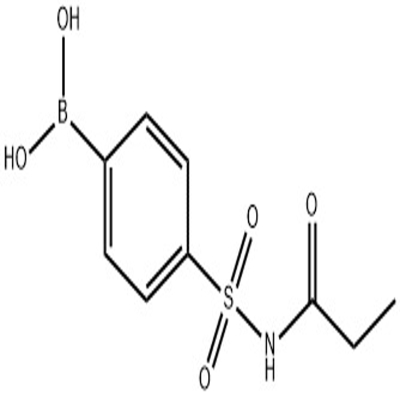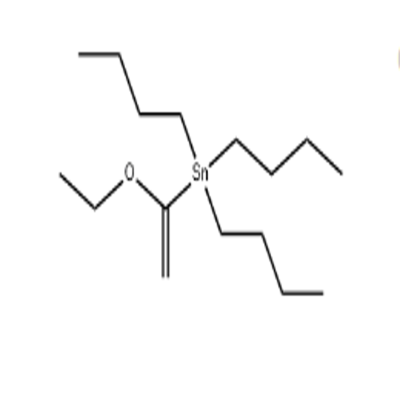An exclusive interview with Professor Li Wenyu, winner of "science breakthrough Award": icebreaker of Parkinson's disease
-
Last Update: 2019-11-04
-
Source: Internet
-
Author: User
Search more information of high quality chemicals, good prices and reliable suppliers, visit
www.echemi.com
More than half a century ago, young Virginia man Yee Lee came to London alone to study piano performance at the Royal Conservatory of music Like many women from middle-class families in that era, her life path was planned by her family early: after learning, she will win the favor of a rich young man by virtue of her talent, and then teach her husband and children, and play the role given by the tradition ▲ Professor Li Wenyu (courtesy of Dr Virginia man Yee Lee; Credit: Penn medicine) In a foreign country, the teenage Asian girl felt lost She knew clearly that this was not the life she wanted But what are the other options besides following your parents' orders? There was no answer in her mind At that time, Li Wenyu would not think that in decades, she would become a worthy pioneer in the field of neurodegenerative diseases around the world She would not have thought that today she would walk through the red carpet of the "breakthrough prize" and receive the "breakthrough prize of life science" trophy This is a heavyweight award with the name of "Academy Award in science", the amount of which is about three times that of the Nobel Prize, and the most scientific award in the world Li Wenyu was born in Chongqing in 1945 The name of this mountain city is exactly the origin of the word "Yu" Her father, a Chinese living in the United States, volunteered to join the air force during World War II and returned to China to fight against Japanese aggression In a battle, his plane was shot down, and I was injured, but like the plot of the novel, I got to know Li Wenyu's mother Li Wenyu is the youngest daughter in the family After World War II, their family moved to Hong Kong: their father went back and forth to do business between Hong Kong and the west coast of the United States, and their mother took care of their children at home In her teens, most of Li's family members followed her father to the United States Only she and a brother stayed at her grandmother's home in Hong Kong to finish high school "So in the process of my growing up, there are not many role models to learn from, and there are not too many people to supervise me and guide me." In an interview with the content team of Wuxi apptec, Professor Li Wenyu said: "learning is the only thing I can do." Under the arrangement of his mother, after graduating from high school, Li Wenyu went to England to study piano performance She left the UK with a master's degree in biochemistry Speaking of this amazing transformation, Professor Li Wenyu revealed to us the thinking behind the choice: "I don't want to learn piano I liked science very much when I was in high school, so I went to London University to study science At first I chose chemistry, but later I thought pure chemistry was a little boring, and finally changed to biochemistry " ▲ Professor Li Wenyu and Professor John trojanowski (courtesy of Dr Virginia man Yee Lee; Credit: Penn medicine) "After my master's degree, I think if I want to have enough money to support myself, I still need to read a doctor's degree." Professor Li Wenyu recalled She received her Ph.D in biochemistry from the University of California, San Francisco (UCSF), and went to Holland and Boston for more training It was in Boston that she met her lifelong partner, John trojanowski, an excellent neuropathologist "John is the one who really encourages me to pursue my science career," said Professor Li "Many women in our generation don't know what they really want to do My husband told me that you have enough talent and courage to try science He gave me a lot of confidence and we worked very happily together " But fate does not want her scientific career to be smooth In his first few years of scientific work, Professor Li Wenyu stumbled After two unhappy years at a pharmaceutical company, and after joining the University of Pennsylvania, she is at risk of a shortage of research funds In order to leave a way for herself, she went to Wharton Business School to get an MBA in case she was "going to lose her job one day" The imagined unemployment has not come On the contrary, a new star is rising in the field of neurodegenerative diseases At the University of Pennsylvania, Professor Li Wenyu and Professor trojanowski set the research direction as neurodegenerative diseases At that time, the social burden of Alzheimer's disease was gradually emerging, attracting the attention of countless scientists "More than 30 years ago, we knew nothing about the pathogenic proteins behind neurodegenerative diseases We don't know that there are β - amyloid protein in the deposition of Alzheimer's disease, tau protein in the neurofibrillar tangle, or α - synuclein in Lewy's body "But John and I have complementary skills, so we decided to work together to see if we can contribute from different perspectives to find the disease causing molecules," Li recalled In 1991, the team quickly ushered in a breakthrough In the brain of Alzheimer's patients, they use a series of biochemical and immune methods to confirm that tau is the specific protein in the neurofibrillar tangle The study, published in science, a leading academic journal, refreshes people's understanding of tau protein ▲ this study refreshes people's cognition of tau protein (picture source: reference [1]) And that's just the beginning of a high-yielding team that's looking into neurodegenerative diseases Around 2000, they turned their attention to a disease called frontotemporal lobar dementia (FTLD) "At that time, we found that only half of the patients had tau protein accumulation in the neurofibrillar tangles, which surprised us If there is no tau protein in the brain lesions of the remaining half of the patients, what causes their diseases? " Asked Professor Li Wenyu After years of purification and analysis, they found a protein called TDP-43 Antibody binding experiments showed that the protein accumulated in the focus of patients Subsequently, the team developed a mouse model with gene modification method to express the mutant TDP-43 Sure enough, these animals show similar symptoms of dementia to people Further analysis confirmed that TDP-43 lost its normal nuclear localization and appeared in cytoplasm in both mutant mice and human patients This is an RNA binding protein, which is involved in the regulation of transcription and translation, and has different functions from the common α - synuclein or tau protein This is the first time that RNA binding protein has been found to play a role in neurodegenerative diseases In addition to tau protein and TDP-43 protein, Professor Li Wenyu and Professor trojanowski also made many breakthrough discoveries on α - synuclein "We injected synthetic α - synuclein fibers into the brains of wild-type mice and found that they can spread between cells and produce structures similar to Lewy bodies This is one of our most important discoveries " Professor Li Wenyu commented Although this experiment is simple, it provides a strong scientific basis for us to confirm the causal relationship between "Lewy body production" and "dopaminergic neuron degeneration", which is a major breakthrough in the field of Parkinson's disease It also appeared in Science in 2012 In 2018, the team published another important discovery in the journal Nature: in Parkinson's disease and multiple system atrophy, although there is a large amount of α - synuclein accumulation in the brain area of patients, their structures and properties are quite different "We found that different variants of α - synuclein may produce different folded conformations due to different post-translational modifications, leading to different disease morphology." "So different neurodegenerative diseases may also be caused by different variants of pathogenic proteins, which has changed our simple cognition in the past," Li explained ▲ Professor Li Wenyu is the only female among the five winners of this year's "life science breakthrough Award" (photo source: Official Website of "science breakthrough Award") Over the past 10 years, a series of major discoveries and breakthroughs in the field of neurodegenerative diseases have attracted the attention of Professor Huda zoghbi, winner of the 2017 "scientific breakthrough Award" On her recommendation, Professor Li Wenyu won the laurel of "life science breakthrough Award" The award-winning comment is "found the accumulation of TDP-43 protein in frontotemporal dementia and amyotrophic lateral sclerosis (ALS), and revealed that there are different forms of α - synuclein in different types of cells in Parkinson's disease and multiple system atrophy" It is worth mentioning that among the five outstanding biologists awarded this year, Professor Li Wenyu is the only female From tau protein, to TDP-43 protein, to alpha synuclein, "many people may wonder why I study so many different proteins, why I study so many different neurodegenerative diseases at the same time." In Professor Li's view, this is because they share the same pathogenesis - whether Alzheimer's disease, Parkinson's disease, or frontotemporal dementia, there are many accumulation of pathogenic proteins It is because of his rich experience in studying various diseases and pathogenic proteins that Professor Li Wenyu has a profound understanding of the complexity of these diseases Talking about the recent progress in the treatment of Alzheimer's disease, she said that "the targeting of β - amyloid protein has a certain scientific basis and seems reasonable." This is because we found that these proteins accumulate in the brain of patients very early, much earlier than symptoms appear "They may have dementia in their 60s, but in their 40s, there's a build-up of beta amyloid in the brain So it's natural for people to think that if they can reduce the production of β - amyloid protein, they can alleviate the following symptoms " The key to the treatment of neurodegenerative diseases such as Alzheimer's disease may be "combination therapy" and "biomarker" (photo source: [public domain]) Professor Li Wenyu thinks the theory seems straightforward, but he may think things too simply "If these drugs are really successful, I would be happy," said Professor Li "But in my opinion, the mechanism behind these neurodegenerative diseases should be more complex Of course, in mouse experiments, we have achieved good therapeutic effects, but human beings are totally different creatures, it is difficult to imagine that the same simple treatment can be successful If the treatment targeting beta amyloid doesn't work, we should also look at other pathogenic proteins in the brain " The future of neurodegenerative diseases may belong to two key words: combination therapy and biomarkers Combination therapy refers to targeting different pathogenic proteins at the same time, such as tau protein and β - amyloid protein "These are easy targets to think of at present, but we need other new targets, which will achieve very different results." The search for biomarkers may be more
This article is an English version of an article which is originally in the Chinese language on echemi.com and is provided for information purposes only.
This website makes no representation or warranty of any kind, either expressed or implied, as to the accuracy, completeness ownership or reliability of
the article or any translations thereof. If you have any concerns or complaints relating to the article, please send an email, providing a detailed
description of the concern or complaint, to
service@echemi.com. A staff member will contact you within 5 working days. Once verified, infringing content
will be removed immediately.





![1-METHYL-4-[5-(4,4,5,5-TETRAMETHYL-1,3,2-DIOXABORALAN-2-YL)PYRIDINE-2-YL]PIPERAZINE](https://file.echemi.com/fileManage/upload/goodpicture/20210822/m20210822160345712.jpg)

